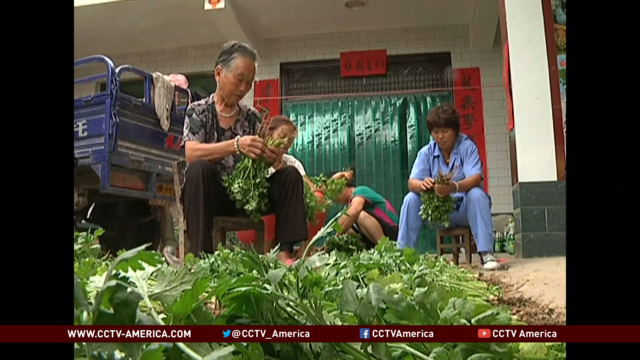China recently announced a major reform in its household registration system. Social benefits between urban and rural residents will be adjusted. CCTV America’s Xia Ruixue reports.

Reforms to China's Hukou system will largely impact farmers, migrants
China recently announced a major reform in its household registration system. Social benefits between urban and rural residents will be adjusted. CCTV America's Xia Ruixue reports.In the village of Zhongzhuang, the topic of the Hukou system often finds its way in conversations. A Hukou is a household registration record that officially identifies a person as a resident of an area and includes identifying information such as name, parents, spouse, and date of birth. The village people, who’ve spent most of their lives on their farms, had mixed feelings about erasing the division between urban and rural registration.
The change to the Hukou system will make it easier for China’s 200 million migrant workers to settle in big cities, and will give them access to equal services.
Reversely, farmers are worried this change may indirectly lead them to lose their family lands.
“I won’t live in the city on my own if I live in the city. But if my whole family moves, we may need to buy a big apartment there. But property is too expensive. It’s a really hard decision to make. I hope there will be more reasonable ways to solve the farmland issue.” – Zhong Yufu, Zhongzhuang village farmer
According to the guideline, local governments cannot force farmers who decide to settle in the cities to relinquish their land.
So far, the Beijing government has pledged to push land reforms that will allow farmers to lease or sell their land when they leave villages. Other cities are slowly implementing similar reforms.
Rural hukous are often tied to land rights and social welfare access. The guideline has promised basic public services and equal rights. If the farmland issue is solved, people in rural areas will feel more secure about moving to live in cities.
 CGTN America
CGTN America
